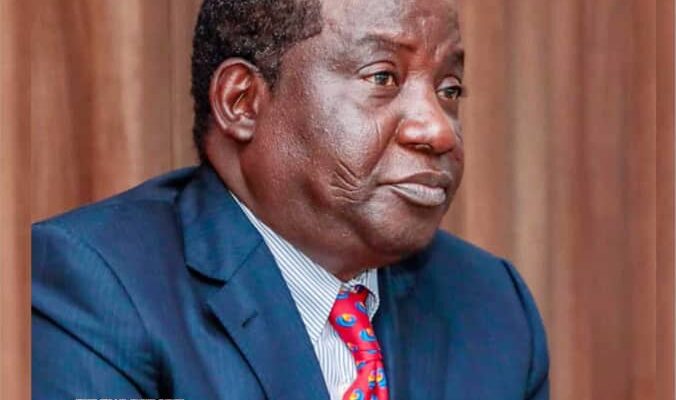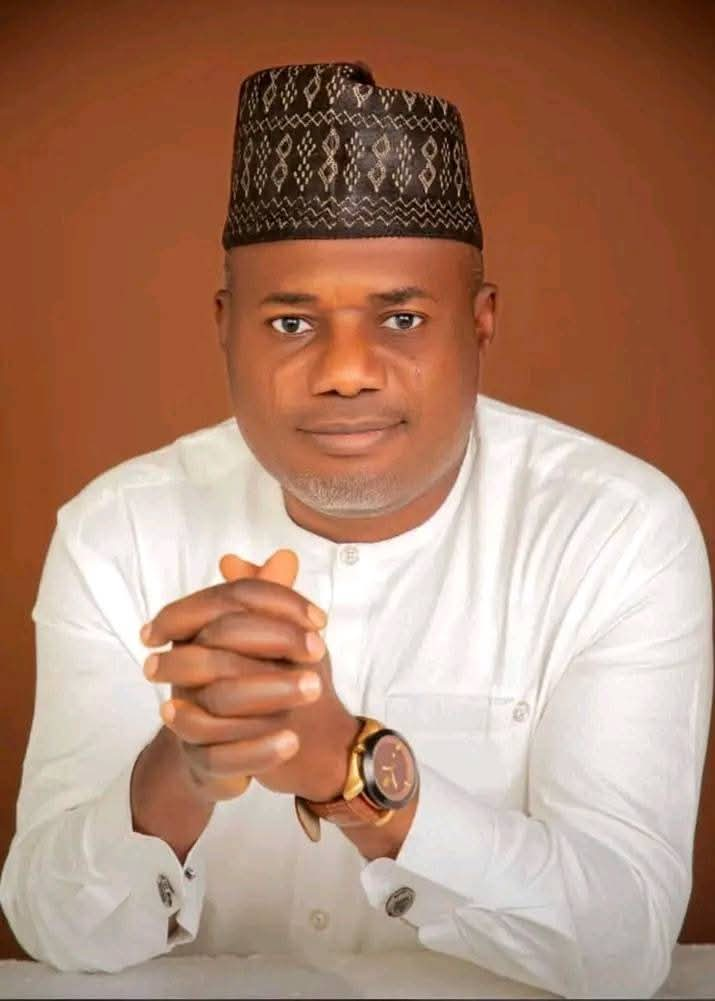
Since the return to democracy in 1999, among the myriad of problems Plateau State has grappled with for close to two decades, security of lives and property appears to be the most pressing. This follows the outbreak of hostilities on 7th of September, 2001, in the city of Jos and other communities in the State.
The widely acclaimed “Home of Peace and Tourism” had in the recent past attracted headlines on both local and international media.
THEANALYSTNG reports that the once serene city was punctured by a series of ethno-religious crisis, as wanton destruction of lives and property held sway in the state.
Recall that houses and places of worship were torched and razed down; innocent people were hounded, hacked to death or maimed on account of belonging to a particular faith.
About 20 years down the line, the ugly scenario appears to have resurfaced, especially now with the advent of social media, where videos of such dastardly acts are shared which further triggers more anger and disdain among the citizens.
DAILY POST gathered that since the hostility started about 20 years ago, the military which carries the onerous burden of enforcing security has been caught in the web of lack of credibility, leaving residents with the option of subscribing to the awkward doctrine of “everyone to himself and God for all”.
Similar, allegations have resurfaced again as the 3 Armoured Division of the Nigerian Army whose GOC doubles as the Commander of the military task force responsible for the maintenance of peace in the state, Operation Safe Haven; has been accused of not living up to expectation.
Residents have claimed that a military barracks in Bassa LGA is just a few kilometres away from most of the villages attacked and destroyed for hours and days, without any response and protection from the Army; saying every reasonable man would have expected that Irigwe chiefdom would have enjoyed more protection and security presence going by its proximity to the barracks.
There was also an allegation that some military personnel stood by while Irigwe villages were destroyed, saying they have not received orders, an allegation the military has denied.
Observers have noted that waves of aggression against Plateau communities have increased in the last two years and assuming a permanent status.
Some community members have submitted that the relentless pogrom perpetrated by suspected Fulani herdsmen reveals a strategic character within a wider framework designed to eliminate, displace and dispossess the natives from their ancestral land.
Others believe that their aggressors have already declared war against the natives towards creating illegal grazing reserve since efforts to use the National Assembly to achieve that had failed on several occasions.
The communities feel this is more so taking into account that the incessant attacks leading to the forcible dislodged of some communities fall within geographical area rumoured to have been carved by the authorities as grazing reserve for the Fulani herdsmen.
Areas that have come under severe attacks by the suspected Fulani Herdsmen of recent include; Byei, kum, Wereng-Camp, Gwa-Rim, Gwol-Hoss, Beaten, Kohorok, Darigi, Kakeheng, Kuru-Dungus, Kàngbrrò, Kishisho, Gyyèh, Dùndù, Nkièdonwŕŕo, Hukke, Ñchaa, Rotsu, Ta”agbe, Rikwehchoñgù, La’akeh, Kparra, Ñshwarùbà, Ri-bakwa, Kpachudu, Kpatènviè (Jebbu miango), Ñchetah all in Riyom, Barkin Ladi and Bokkos LGAs respectively.
However, terribly hit in the past two months and most recently, are the Irigwe chiefdom in Bassa LGA of the State; according to the TEKAN/ECWA bloc of Christian Association of Nigeria, Plateau State Chapter, “From July 30th to August 17th, 2021, over 85 persons were killed, over 55 persons were hospitalized, over 3,141 houses were burnt, about 1,520 houses vandalized and 2,901 farms destroyed, with 5,901 families displaced.”
He added that, “More than 29, 805 people were displaced, more than 26 villages destroyed, all within 39 communities of Irigwe chiefdom of Bassa LGA.
Despite the aforementioned statistics of what befell the chiefdom, the Paramount Ruler of the chiefdom, the Brra Nggwe Rigwe, Ronku Aka, lamented that his people are being hunted everywhere like rats, but assured there will be no reprisal because of their strong belief that God will avenge the attacks on them.
Of all that has befallen the chiefdom, the TEKAN/ECWA said, “The story of displaced persons in Plateau State is a sorry reality.
“The hardship they are passing through is a serious concern for us as a Church and Bloc.
“There are thousands of people staying in IDP camps and some have been there for years, others are in the homes of relatives and neighbours who had painfully accommodated them despite the economic hardship being witnessed.
“We are calling on government and all spirited individuals and communities to come to their aide”.
However, the 14th August, 2021 skirmishes at Rukuba road area of Jos North LGA claimed 25 lives of commuters, 14 injured and 36 rescued, who were said to be traveling to Ikare in Ondo State, according to security reports.
The commuters were said to have been attacked by miscreants, and several arrests have been made according to security reports.
But observers wondered why no arrest has been made in the numerous attacks aforementioned.
The August 14 attack on the commuters has led to resurgence of isolated killings of passersby especially in communities dominated by a particular faith.
The targets are some communities in Jos North LGA; many of such victims have been students of University of Jos, which has even led to the suspension of academic activities in the institution.
The students of the University on many occasions have been victims of aftermath of reprisal attacks as many students of the institution have over the years lost their lives because of the alleged poor security network around the University.
The aforementioned has led to the evacuation of thousands of students from the University.
Evacuation of students
The Senator representing Plateau North, Istifanus Gyang, was the first to commence the evacuation, followed by the Benue and Abia State Governments, among others.
This has been a recurring decimal once there is any security breach in Jos North.
Concerns have been raised on the need for schools to be well secured. The questions residents and others are asking is, would students continuously be evacuated once there is security breach?
On the impact of the evacuation of citizens from the state, a security expert, Steve Aluko, said, “It tells a larger and bigger story and, gives credence to different narratives about the insecurity of life and properties in Plateau State and Nigeria as a country.
“It also shows in clear terms how insensitive, irresponsive and unacceptable the schemes are.
Aluko maintained that, “This also shows how hypocritical those in authority are.
He added that, “It exposes the weaknesses and idiosyncrasies of our security agencies, security architecture and failure of their capacity to rightly collate, analyze and deploy its best to arrest, prevent and deescalate the warning signals or violent conflict situations.
“In all, it is regrettable and avoidable deaths as well as the destruction of property if the right and prompt actions were taken by the government at all levels to avert same, ” he explained.
According to him, “The only lasting and permanent solution is for all to hold and ensure that government at all levels pride the security of all citizens where they seek to live and trade; and help the authority of the University of Jos and other universities to reclaim all their landed space.
“Doing anything short of these will amount to postponing the evil days of more blood baths with more gruesome deaths, and ruining of more innocent citizens as this can trigger a national genocide, ethnic and religious cleansing in a larger scale and ripples greater than the Rwandan massacre; worst still, promoting another form of apartheid phobia”.
On its effect on the state’s economy, Aluko said, “It sure will affect the economy, as many will be sceptical about coming to the state to invest, as they will be concerned about their safety and that of their businesses”.
In a whole, citizens especially in Jos-Bukuru metropolis are very apprehensive, because of not knowing what to expect despite the restoration of normalcy and deployment of security in flash points.
The fear of being hounded or maimed for belonging to a particular faith, especially in Jos North LGA.
On the way to tackle incessant attacks in rural communities, the Commander General, National Hunters Council (NHC), Joshua Osatimehin said the council has a solution to the ongoing incessant attacks and killing of Nigerians in rural areas.
The Commander General said if given the necessary support by government, the Council members are capable of curtailing the wanton killings.
According to him, “Some state governments who have partnered with the Hunters Council can attest that the results are positive.
Osatimehin revealed that Bauchi and Ekiti States who have placed majority of its members on payroll can attest to the dividends it has gotten so far.
The Commander General revealed that, “Our members are present in the 36 states, including the Federal Capital Territory (FCT), but are hardly recognized by the authorities.
He said the bill to establish the NHC has gone through its second reading at the National Assembly and awaiting final passage into law.
He called on Governor Simon Lalong of Plateau State, and other State Governors to incorporate Hunters Council in their state security architecture as a means of ending the incessant killings in the hinterlands.
Osatimehin maintained that NHC is trained by conventional Nigerian security operatives









